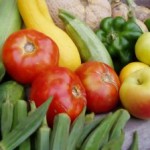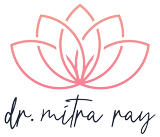Because so many of the questions that we receive have to do with published research, we offer links to transcripts and articles in many of our answers. Additionally, when Dr. Ray receives a great many questions on a particular topic, she will often answer in a broadcast call or recording. These recordings and PDFs are available for you below.In this segment, Dr. Mitra Ray answers questions on diet and how to eat heathily.
of our answers. Additionally, when Dr. Ray receives a great many questions on a particular topic, she will often answer in a broadcast call or recording. These recordings and PDFs are available for you below.In this segment, Dr. Mitra Ray answers questions on diet and how to eat heathily.
1. Why spend so much money on organic food? Is it really worth it?
2. Is a Raw Food Diet a healthy option?
3. I’d like to know more about micronutrients, macronutrients, and amino acids.
4. Should I take fish oil for Omega 3 supplementation?
5. How safe are Splenda, Stevia, and other sweeteners?
6. What are some good fats? Isn’t olive oil an important part of a healthy diet?
7. What is the best way to filter my water? Which water filtration system should I choose?
8. What vitamins and other supplements should I take to stay healthy?
1. Why spend so much money on organic food? Is it really worth it?
You can either subsidize your illness or invest in your wellness. Most people unknowingly subsidize their illness. Pharmaceutical companies, just like any other business owners, want repeat business. It doesn’t make financial sense to them to actually cure you – they want you to have your diseases, and develop more over time so that they can give you something to treat the symptoms.
The reality is that you have to spend money on your health, one way or another. The choice of where to spend that money, however, is yours: you can pay for Juice Plus+, organic groceries, your gym membership, pay for your yoga studio, your massage therapist, and your naturopath, OR you can pay pharmaceutical companies, hospitals, etc.
But nothing is free. To be truly healthy, you have to spend money. The good news is that you will feel better, look better, live longer, and enjoy life more by choosing to spend your dollars on health, rather than on illness.
A great way to start introducing the organic, plant-based lifestyle into your home is to consult Do You Have the Guts to Be Beautiful? as a guide. It is an accessible book with simple solutions for your health.
2. Is a raw food diet a healthy option?
I think 70-80% raw is great. 100% raw is not always appropriate, nor practical, nor necessary.
Raw grains can be tough for many people who have to first do a cleanse because their digestive system is not prepared for fully raw grains. Children also cannot handle too much fiber, and infants should have none at all. So it all depends; it is not a black or white question.
A great fresh, raw way to start your day with tons of nutrients and energy is to make a green drink, as detailed in my book Do You Have the Guts to Be Beautiful?
For healthy, fast meals, you can also get a copy of my small cookbook Simple and Delicious: Recipes for Vitality.
3. I’d like to know more about micronutrients, macronutrients, and amino acids.
You can listen to Dr. Ray’s answer in this recording, or click here for a PDF transcript of the talk
4. Should I take fish oil for Omega 3 supplementation?
I do not recommend fish oil. The best option is to just grind up fresh flax seeds daily and put them in your green drink or your favorite smoothie.
Keep in mind that nothing beats the benefits of a 90-100% plant – based diet, as it helps us naturally produce adequate amounts of those nice EFA’s, DHA’s and GLA’s that we hear about in isolated supplement form. If you take a whole food supplement such as Juice Plus+, this should also help the body process essential fats better, as it reduces dietary stresses on the body.
You can read more about flax versus fish in this newsletter article.
5. How safe are Splenda, Stevia, and other sweeteners?
There are a lot of sweeteners on the market that do more harm than good.
Some acceptable sweeteners are agave syrup, raw organic honey (locally produced is even better), or maple syrup.
Stevia is an herb that grows as a small shrub. It is incredibly sweet due to the glycosides in its leaves. Some of the benefits of Stevia can be management of obesity, since it has been shown to affect blood glucose, and it may help lower high blood pressure. The dangers that are being posted on the web, such as reproductive difficulties, cancer, and energy metabloism, are all from studies done with very large quantities – much more than any human could or would consume. Like any herb, you must use sparingly, not in large doses. One other note: when buying Stevia, look for 100% Stevia extract with no additives.
We do not recommend Splenda because it is a chlorinated artificial sweetener. You can Google “what is Splenda” and find out more about how it is developed.
If you are looking for an alternative to sugar because you are pre-diabetic, the best thing you can do is to train your body to eat hot spicy food, rather than sugar, to help balance your insulin and improve your circulation.
For some great recipes that use natural sweetners, get a copy of the small cookbook Simple and Delicious: Recipes for Vitality.
6. What are some good fats? Isn’t olive oil an important part of a healthy diet?
The short answer: The only healthy fats to consume are those found in whole foods. This means raw nuts and seeds (whole – not the oil from those nuts and seeds), avocados, coconuts, etc. And even these should be eaten sparingly, treated as condiments for the most part.
The long answer: If you look at the main function of the small intestine, and the whole purpose of eating for that matter, you realize that it is all about the absorption of nutrients: 17-35 feet of tubing dedicated to absorbing phytonutrients, essential fats, amino acids, and carbohydrates, so you can live a healthy and vital life.
And the surface is not smooth, but rather covered with thousands of villi in order to maximize the surface area for absorption. As the villi are delicate, they are constantly being replaced. This repair and maintenance is expensive for the body in terms of utilizing available water, carbohydrates, protein, and important fats. Yet the body chooses this expensive repair of the villi constantly as it is a priority for the body to absorb nutrients from the food we eat. Are the food choices we make in alignment with this priority?
Indulge me for a second and imagine the grease on your on a pan after a particularly fatty meal preparation. Also imagine what would happen if you never used soap and a scrub brush to wash it off, but let it pile up each time you cooked.
Okay, each time you eat isolated fat (butter, butter substitutes, fish oil, flax oil, olive oil, coconut oil, DHA, EPA, you name it), these oils begin to coat those precious villi and there is no soap or scrub brush to wash it off. To make matters worse, other poor food choices (such bits of sticky food made from flour, chips, crackers, cheese etc.) pass by this grease coating. Now you literally have tar build up totally blocking the villi, and the body cannot absorb nutrients efficiently at all through the tar layer.
This is the exact predicament that causes everything from aging skin to serious illness. This is what I work on at the retreat to dissolve. This is also the major reason some people cannot make the transition to a healthy diet simply by a change of food choices. They become convinced they are carnivores because they feel better when they eat meat, and they think it’s because they need protein. Since calorie per calorie, plants provide the same amount of protein, that assumption is wrong. The main reason is a twisted one: the meat causes constipation as it slows down the rate at which food travels through the intestine, and this allows the body to absorb some nutrients. However, creating constipation is not a good long term solution to the real challenge at hand. We have to eliminate the tar as well. This is why I talk about the importance of enemas in my book. At my retreat, we work to dissolve this tar layer. A healthy body does not produce hard stools, which are an indicator of constipation, whereas smooth, easy bowel movements are a good indicator of a functioning digestive system.
Consider this: does a Giraffe coat the leaves he is eating with olive oil for better health? Why do we ruin a perfectly good plate of leafy greens with a coating of oil which will also make it difficult for digestive enzymes to recognize the food for what it is?
Whole food is the key. Isolated fats are just that: isolated. Just like we understand that isolated sugars are not a good thing, we will slowly come to understand that isolated fats are not a good thing either. Nor are isolated proteins but that is the topic of another newsletter.
Finally, here’s a link to my 2008 article about good fats vs. bad fats, which contains some additional information.
7. What is the best way to filter my water? Which water filtration system should I choose?
There are many versions of acceptable water filtration systems. As discussed in the book Do You Have the Guts to Be Beautiful?, we recommend reverse osmosis and distilled water as the best options. Remember to supplement your water with colloidal minerals.
One brand of water filters that we recommend is www.purewatersystems.com.
8. What vitamins and other supplements should I take to stay healthy?
Vitamins were discovered at a time when technology was not nearly as advanced as it is today, and only a handful of plant nutrients were identified as the “vitamins” that one would find in a daily supplement. Today, more sophisticated technology has identifited over 25,000 plant nutrients, called “phytonutrients”, that our bodies can benefit from. The handful of isolated vitamins that are available are just a small part of that bigger story.
I don’t believe in isolated supplementation for long term daily usage. People are not vitamin deficient. They are whole food deficient. Not enough people are choosing to get 90% of their calories from phytonutrient rich plants, especially fruits and vegetables.
So I recommend, and have taken for 17 years, a product called Juice Plus+. This is the only product with an entire body of human clinical trials that show the efficacy of the product improving health markers such as immune system, cardiovascular system, less inflammation, and overall better antioxidant status in the blood.
Watch the “Bridging the Gap video” on this new site we are developing, and talk to your Juice Plus+ distributor, or click here, to order. I recommend the orchard, garden, and vineyard blends as they provide a rainbow spectrum and variety.
Let us know if you have questions, or check out our Juice Plus+ Q and A and our published studies and research page for even more information.
